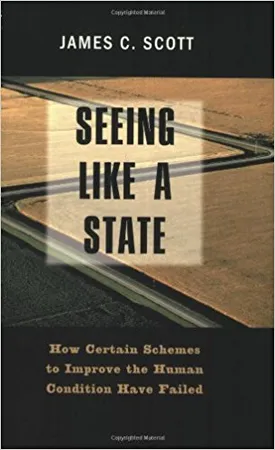James C. Scott
James C. Scott is an American political scientist and professor at Yale University, specializing in agrarian studies, anarchism, and comparative politics. He is a prolific author whose works offer an insightful analysis of the relationship between power and governance. His writings also reveal the various nuances in history that can be overlooked when approaching any given subject.
Scott was born in 1936 in Decatur, Illinois. He grew up with a love of history, first learning the stories of his father’s wartime service in the Second World War. After attending college at the University of Chicago, Scott received his doctorate in political science from the University of Wisconsin in 1964. Since then he has taught at the University of Wisconsin, Cornell University, and since 1985, at Yale University’s Political Science and Humanities Departments.
Scott’s most celebrated works include 'The Moral Economy of the Peasant: Rebellion and Subsistence in Southeast Asia' and 'Seeing Like a State: How Certain Schemes to Improve the Human Condition Have Failed'. The former provides unique insights into peasant rebellions in Southeast Asia, demonstrating how the cultivators of the region, knowing the local conditions better than their overlords, had to band together for survival. 'Seeing Like a State' explores the flawed plans of those in authority who look to control and organize the lives of individuals instead of respecting the voices and history of the people they are trying to govern. In his words, “Seeing like a state, with its emphasis on disciplined grids, ignores and even steps on the nonlinearities and small-scale, localized knowledge that constitute the small-scale ecosystem.”
Scott's other works include 'Weapons of the Weak: Everyday Forms of Peasant Resistance', 'Domination and the Arts of Resistance: The Hidden Transcripts', and 'The Art of Not Being Governed: An Anarchist History of Upland Southeast Asia'. In each of these books, Scott turns a critical eye to the ways power is configured within particular socio-political and historical contexts, highlighting potential mechanisms for subversion and suggesting ways in which lives of freedom and dignity might be achieved despite oppressive situations.
Beyond his academic works, Scott also looks at the implications of these theories for contemporary social movements, providing a unique and insightful analysis of their potential effectiveness, as demonstrated in his book 'Two Cheers for Anarchism: Six Easy Pieces on Autonomy, Dignity, and Meaningful Work and Play'. In this work, he offers insight into the potential for alternative forms of social, legal, and economic organization, centered on the values of autonomy, solidarity, and dignity.
James C. Scott's works offer an incisive and sophisticated analysis of power, governance, and liberation. His writings offer both compelling theoretical approaches and real-world lessons, in how different communities respond to oppressive political regimes and exploitative economic systems. His works are essential reading for those interested in understanding the intricate and complex dynamics of power, politics, and justice in a rapidly-evolving world.

